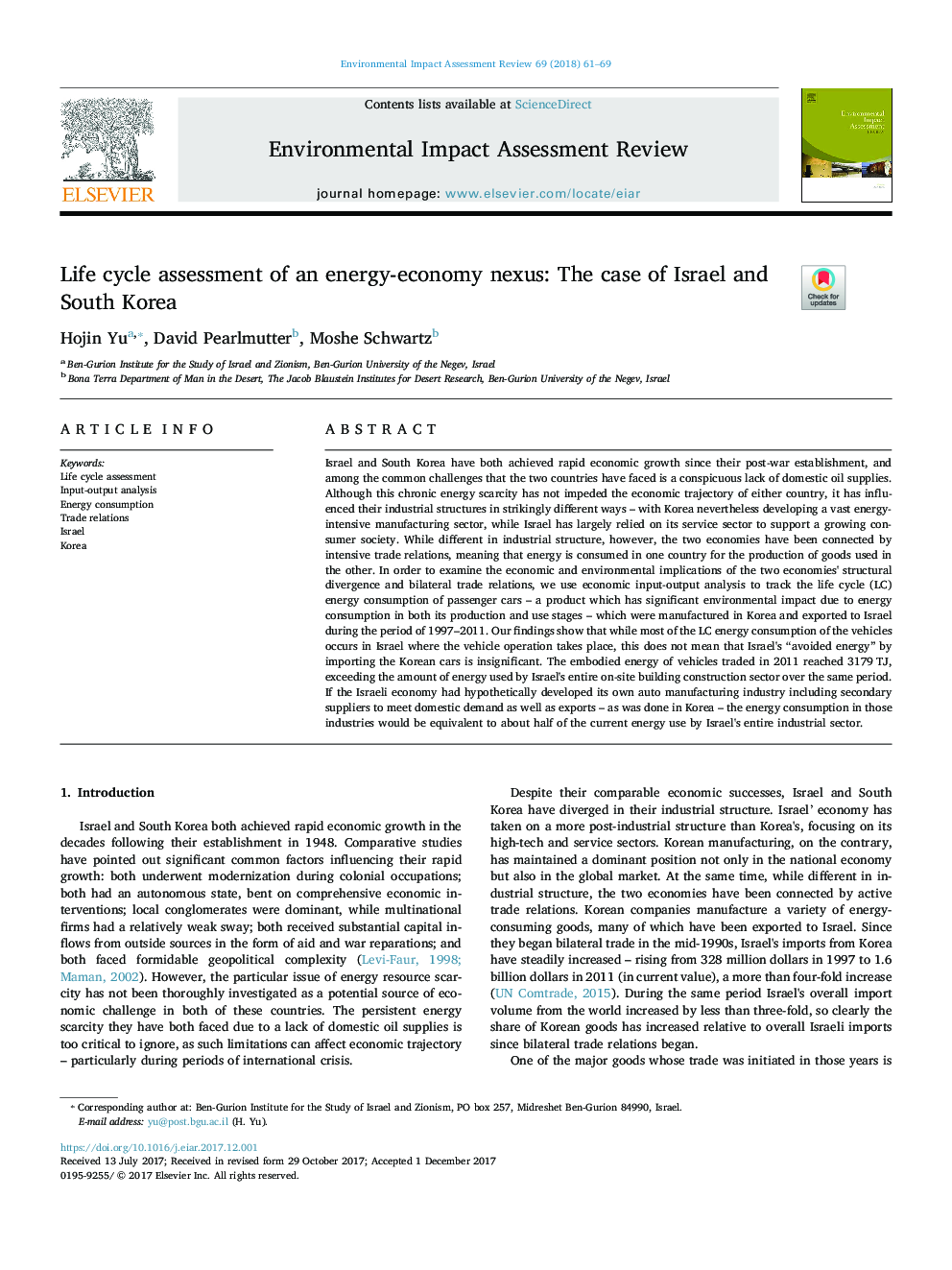| Article ID | Journal | Published Year | Pages | File Type |
|---|---|---|---|---|
| 7464906 | Environmental Impact Assessment Review | 2018 | 9 Pages |
Abstract
Israel and South Korea have both achieved rapid economic growth since their post-war establishment, and among the common challenges that the two countries have faced is a conspicuous lack of domestic oil supplies. Although this chronic energy scarcity has not impeded the economic trajectory of either country, it has influenced their industrial structures in strikingly different ways - with Korea nevertheless developing a vast energy-intensive manufacturing sector, while Israel has largely relied on its service sector to support a growing consumer society. While different in industrial structure, however, the two economies have been connected by intensive trade relations, meaning that energy is consumed in one country for the production of goods used in the other. In order to examine the economic and environmental implications of the two economies' structural divergence and bilateral trade relations, we use economic input-output analysis to track the life cycle (LC) energy consumption of passenger cars - a product which has significant environmental impact due to energy consumption in both its production and use stages - which were manufactured in Korea and exported to Israel during the period of 1997-2011. Our findings show that while most of the LC energy consumption of the vehicles occurs in Israel where the vehicle operation takes place, this does not mean that Israel's “avoided energy” by importing the Korean cars is insignificant. The embodied energy of vehicles traded in 2011 reached 3179Â TJ, exceeding the amount of energy used by Israel's entire on-site building construction sector over the same period. If the Israeli economy had hypothetically developed its own auto manufacturing industry including secondary suppliers to meet domestic demand as well as exports - as was done in Korea - the energy consumption in those industries would be equivalent to about half of the current energy use by Israel's entire industrial sector.
Related Topics
Physical Sciences and Engineering
Energy
Renewable Energy, Sustainability and the Environment
Authors
Hojin Yu, David Pearlmutter, Moshe Schwartz,
